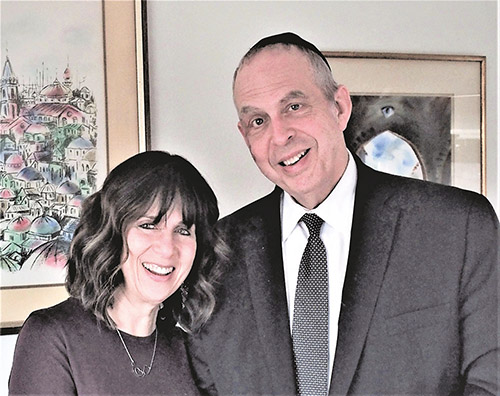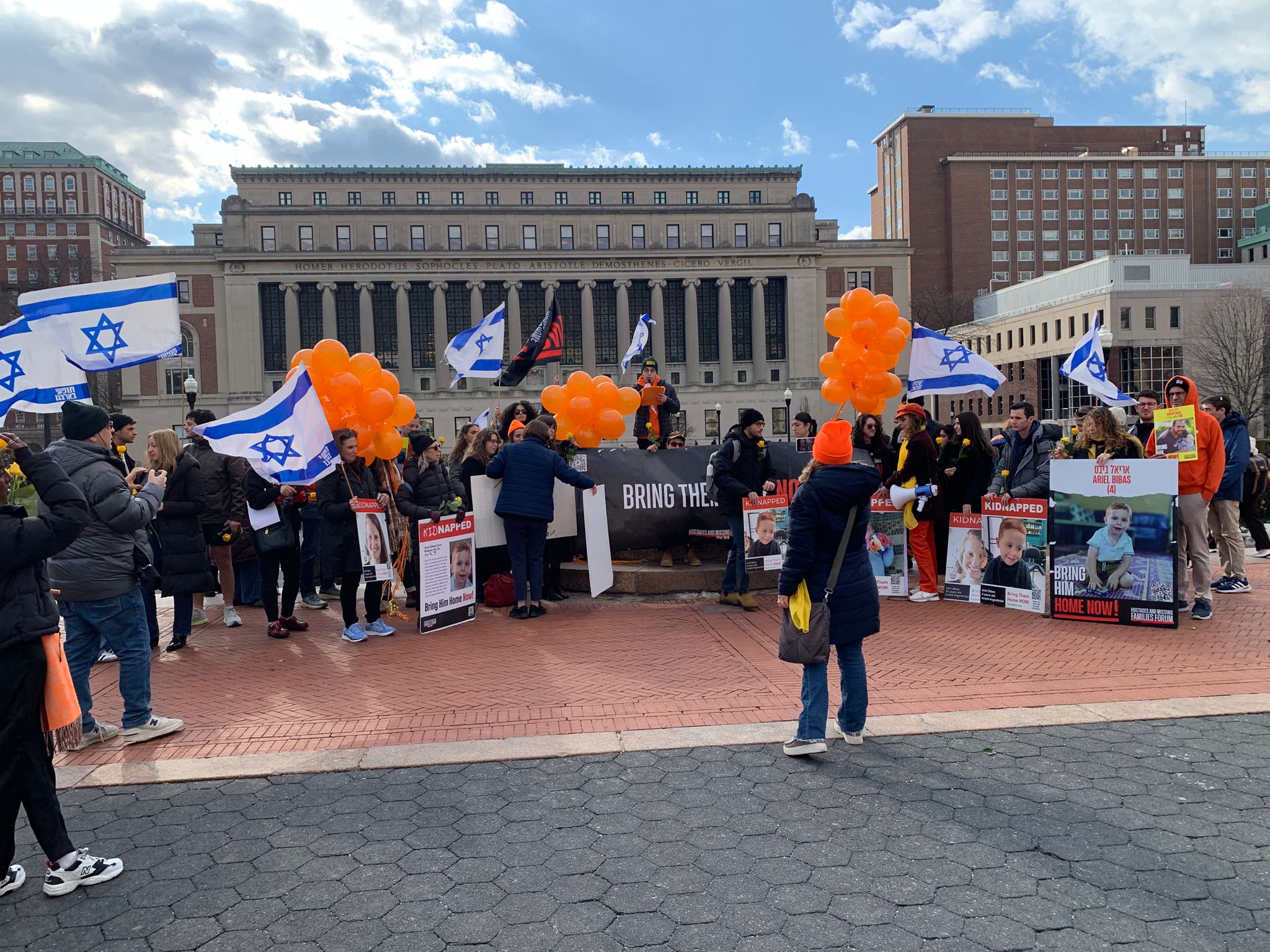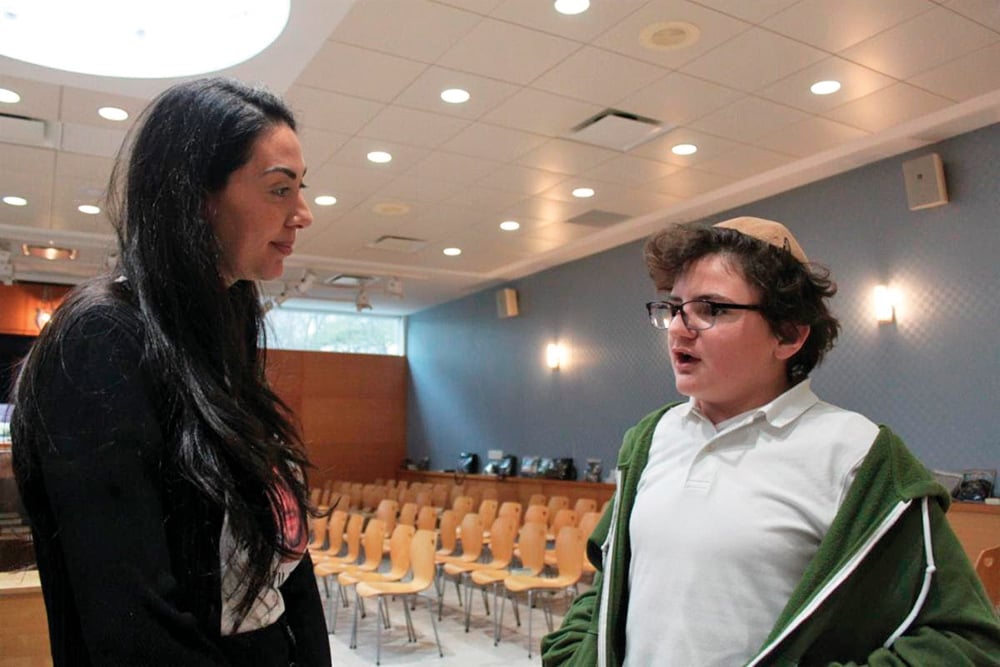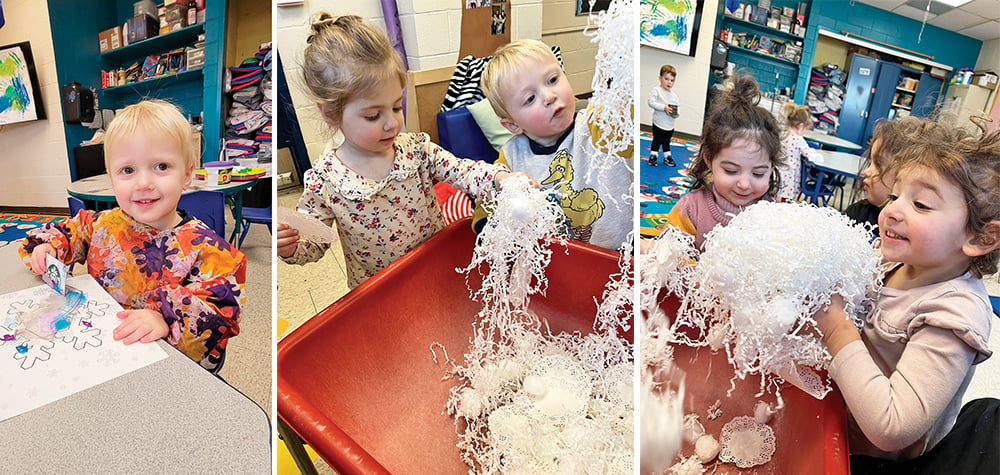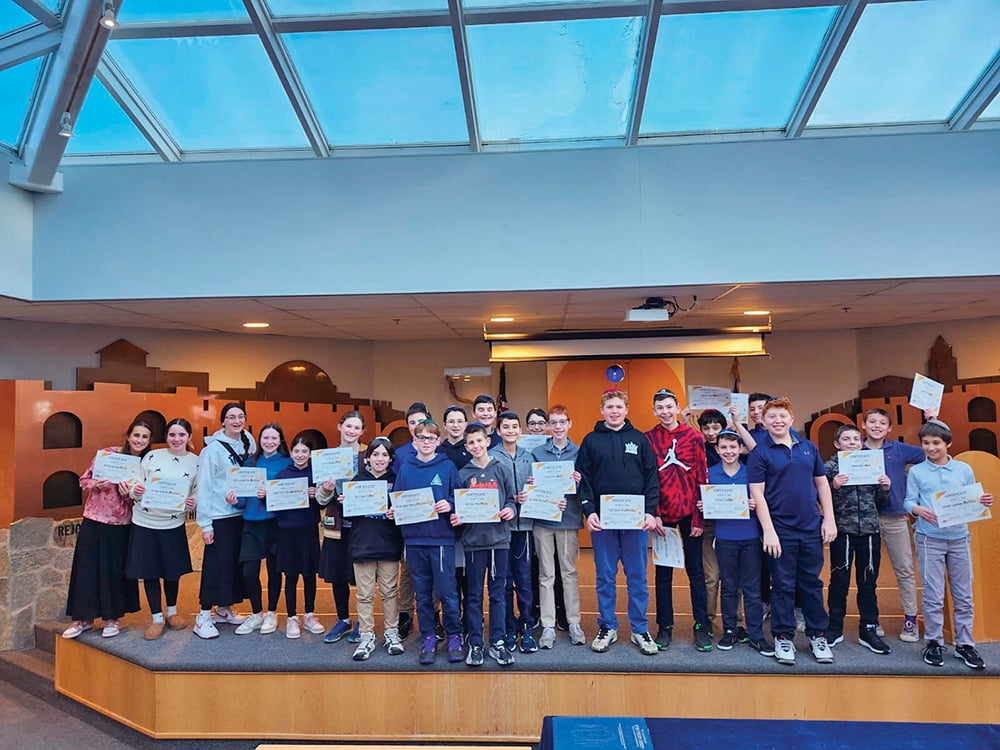


At Congregation Zichron Mordechai in Teaneck, a line starts to form every Shabbat after the minyanim with people who want to greet Rabbi Michael Taubes and ask him a question. “When you ask him a shaila, he is gentle in his message,” said shul president Joe Berkowitz. “He presents it very carefully, thoughtfully and kindly. He never embarrasses or denigrates anyone.” That feeling is echoed by the approximately 80 member or affiliate member families who belong to the shul, which holds minyanim every Shabbat and Yom Tov. “Whenever I mention Rabbi Taubes’ name to anyone in the community, the response is always genuine heartfelt affection and respect,” said Berkowitz. “He is a great speaker, a baal middos and a special individual. Connection with him is a privilege.”
Members Ronda and Marty Leibowitz said that Rabbi Taubes’ Shabbat and Yom Tov drashot infuse them with the right degree of joy or awe. “His Torah knowledge is vast, but his humility is what makes him approachable, sensitive and so special to our kehila.”
An outpouring of appreciation greeted Rabbi Taubes at a kiddush in February to recognize his 30th anniversary as rav of the shul. It was also a celebration of his recovery from a stroke he suffered in December. “People all over town were saying Tehillim,” said Berkowitz. “He was away from the shul for about a month. It was an amazing recovery.”
Rabbi Taubes said he thinks the kiddush was supposed to be a surprise but it was a secret that couldn’t be kept. People were so happy about the occasion that the news slipped out. “I never felt so supported,” he said. “I really appreciate how much people cared, how concerned they had been about me. The outpouring of love, all the calls, helped to inspire my recovery.”
Thirty years ago, Rabbi Taubes had more than a full plate. He wasn’t looking for another responsibility, but the fledgling shul recruited him. It was in 1990 that a few families got together in individual homes, and ultimately at the home of Yaakov and Rachel Stanger, for Shabbat davening that was a little different from the larger shuls in the area. The pace was slower, thoughtful and serious. By 1992, shortly before moving to a rented room at the Veterans of Foreign Wars Post near The Plaza, the group had grown enough that they were looking for a rav. They made Rabbi Taubes an offer he couldn’t refuse.
“I was involved in education. I never pursued the pulpit,” said Rabbi Taubes. Now a rosh yeshiva at YU, where he teaches semicha students, and at MTA, for high school students, he was then a busy high school rebbe and history teacher. He was also the founding director of the Jewish Learning Experience, in addition to giving shiurim and authoring seforim, and he was the gabbai at Teaneck’s Congregation Rinat Yisrael. The founders of the shul approached him to be their rav, and he was attracted to the idea of leading a slower-paced, serious davening with dedicated b’nei Torah. He discussed the position with Rinat’s Rabbi Yosef Adler, who said, “Why not?”
Rebbetzin Bassie Taubes supported the decision. “I had good friends at Rinat and I liked Rabbi Adler,” she said. “On the other hand, I saw it as a good opportunity for Michael.”
After leaving the VFW, the shul met for many years at the then newly completed Torah Academy of Bergen County building. They subsequently met at the home of Isaac and Wendy Shulman before putting up their own building in 2005 at 268 West Englewood Avenue. Originally known as Tzemach Dovid, the Shul changed its name when they moved into their building to Zichron Mordechai, in memory of shul member Mark Rosenberg who was killed in the attack on the World Trade Center on September 11.
Rebbetzin Taubes said she appreciates what the shul has to offer. “People with different levels of ability can be active in the shul. One tech-savvy member recently created a WhatsApp group to share chesed opportunities in the community. My son with autism often gets an aliyah. He would probably never get an aliyah in a big shul.” The small group also fosters an intimacy that becomes even greater over time. “We have grown up together,” she said. “That first weekend when my husband became the rav, there was a bris for a newborn. That baby just had his 30th birthday.”
Aryeh Richman was 12 years old when his father, David Richman, founded the shul. “Rabbi Taubes has been a central figure in my life and my family’s life,” he said. “He was the rabbi at my bar mitzvah, the mesader kedushin at my wedding and there for my son’s bris and his bar mitzvah.” Richman has been a gabbai at Zichron Mordechai for 24 years and served as president for three. “We have a spectrum of people at the shul—young, older, yeshiva educated and newcomers with nominal exposure to Judaism. When Rabbi Taubes gives a shiur, a wide range of people understand and gain from it.”
Zichron Mordechai members daven at other shuls in the area or near their workplace on weekdays. On Shabbat they enjoy the small, quiet, intimate nature of Zichron Mordechai where time slows to focus on davening and self-reflection. There is currently a sizable contingent of recent YU grads and other young men who live in the apartments and like to attend the early hashkama minyan and return to their young families. Rabbi Taubes addresses each minyan. During the pandemic, the shul put up a tent and eventually held three minyanim; people sometimes left with a take-home kiddush. Children’s groups haven’t yet returned but the monthly kiddush for Shabbat Mevarchim has resumed.
Rebbetzin Taubes invites newcomers to Teaneck and people who don’t know about Zichron Mordechai to come for a Shabbat davening. “It can sometimes be hard to get involved in a larger shul,” she said. “You can make your mark on our shul, and maybe you’ll find a new niche you can call home.”
By Bracha Schwartz


